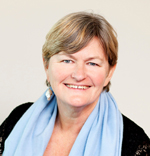I was afforded the wonderful opportunity to undertake the teaching tour of Malawi (Blantyre) and Zimbabwe (Harare) in 2016. When the call went out for Paediatric Surgery and Orthopaedics, I wondered both why I had been contacted and what I could potentially offer. Modern surgical care is as much about updating procedures and developing intricate new techniques as it is about preparing complex patients for surgery and managing their “medical” needs post operatively. In this vein I was invited to support teaching on areas such as peri-operative fluid management, pre-operative preparation, particularly with regard to hypertension management and renal care around surgery. The opportunity to teach in my area of expertise in preeclampsia (hypertension in pregnancy) was also afforded.
How much richer this experience was than I expected! I was able to work with junior doctors teaching in areas of medical student training and clinical officer training in Malawi. I was able to participate in the nursing/midwifery teaching programme. This involved working in pairs with terrific junior doctors delivering programmes on resuscitation of children, general fluid management and postoperative fluid management. I was able to participate in a CPC (clinico-pathological case) with senior colorectal surgeons about fluid care post major abdominal surgery. I was able to give a presentation to the Nursing programme on preeclampsia delivered as a CPC in smaller groups based on local clinical case experiences. I delivered a lecture on preeclampsia and maternal mortality to the medical and clinical officer’s programme.
In the Harare programme, the audience was a strong group of nursing students and graduates and a programme for around 16 surgical registrars of varying seniority. The program there was delivered to peer groups as was their preference and therefore tutorials and SCIMS (structured clinical instruction modules) were delivered at junior and senior surgical trainee levels on topics including post-operative fluid care, fluid balance, electrolyte disturbances and acid base balance; these incorporated renal safe care for surgical patients including post-ureteric obstruction care. I was able to particulate in a CPC on inflammatory bowel disease with a colorectal surgeon and pathologist. The teaching concluded with a bone tumour quiz delivered to the collective group by an orthopaedic surgeon and a CPC on GIT bleeding delivered by a pathologist, colorectal surgeon and myself. There was another opportunity to deliver a tutorial on preeclampsia to the nursing programme, again as a small group tutorial relevant to levels of seniority.
One has to ask oneself how does this work? The concept for me of being able to help deliver a conference with a specific focus on education and training in parts of the world where access to travel and connections with International peers is near impossible is worthy. To think that the future is in the hands of such bright nursing, clinical officers, medical students and junior doctors in these countries, and from Australia, who are giving their free time to both deliver and learn how to work and teach with a global health perspective is very uplifting.For me, the real challenge here is to continue to make the cases and material relevant to local needs but also to build aspirations for better and better medical and surgical care everywhere around the globe. The fact that we learnt so much from each other is the true value of education. The interaction between so many aspects of health care, the inter-professional faculty, is a great strength of the current programme and as elsewhere in the world, an asset of SWB that will be increasingly exploited as time passes. On this tour, the presence of a nurse/midwife (my sister) who had lived and worked for years in Malawi was an additional huge bonus. So much can change over the years, but so much is the same, and the power to use both the expressed local needs and aspirations, as well as the lived experience of others in the field is the only way for programmes to become more and more meaningful with time.
This is of course the essential point. These activities are not for the faint-hearted nor are they a short term strategy. The strengths of SWB are its 10 year history and its mission to work upon request, using existing networks to build a long term commitment to provide the much needed resources that a country like Australia is in the lucky position to share.
Prof Annemarie Hennessy
Dean, School of Medicine
University of Western Sydney

